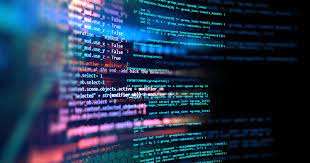In this constantly changing digital world, technology continues to improve and evolve to create a better world. One of the primary movers of technology and the digital world is computer programming language, which is the language spoken and understood by computers. Without programming languages, the computer would not be able to understand and process the instructions given to it by programmers.
Computer programming languages come in many different types, such as Assembly language, C++, FoxPro, Visual Basic, and Visual FoxPro. These languages serve as mediators between the computer and the programmer, allowing the programmer to input commands that the computer can understand and process. These commands are then converted into machine language, which is the language that the computer processor understands.
Different programming languages can provide different levels of functionality. For example, programming languages used in making games can give crisp graphical images, while other programming languages can be used to create functional software such as word processing programs, database programs, and web-based applications. The creation of programming languages that are most fitting to the design and interface of the program being created has made it possible to develop a wide variety of applications.
The evolution of computer programming languages is crucial in keeping up with the demands of the current times. The introduction of new programming languages with new features and abilities can be widely used in different applications. Before, computers were used against a black, monochrome background, but now computers use images, colors, and interactive icons. The evolution of programming languages has made it possible to create programs that are visually stunning and highly functional.
Moreover, the evolution of programming languages would not have been possible without the creation of operating systems. Operating systems serve as a mediator between the computer and the processor’s language, allowing the computer to process every single program created for the operating system. Popular examples of operating systems include Windows, Linux, Unix, and Mac OS. The evolution of operating systems has made it possible to run and use programs on different computer platforms.
In conclusion, the evolution of computer programming languages is required to keep up with the demands of the ever-changing digital world. The introduction of new programming languages with new features and abilities should be a welcome addition to the growing group of computer languages. The evolution of programming languages and operating systems has made it possible to create visually stunning and highly functional programs that have become an integral part of our lives.

